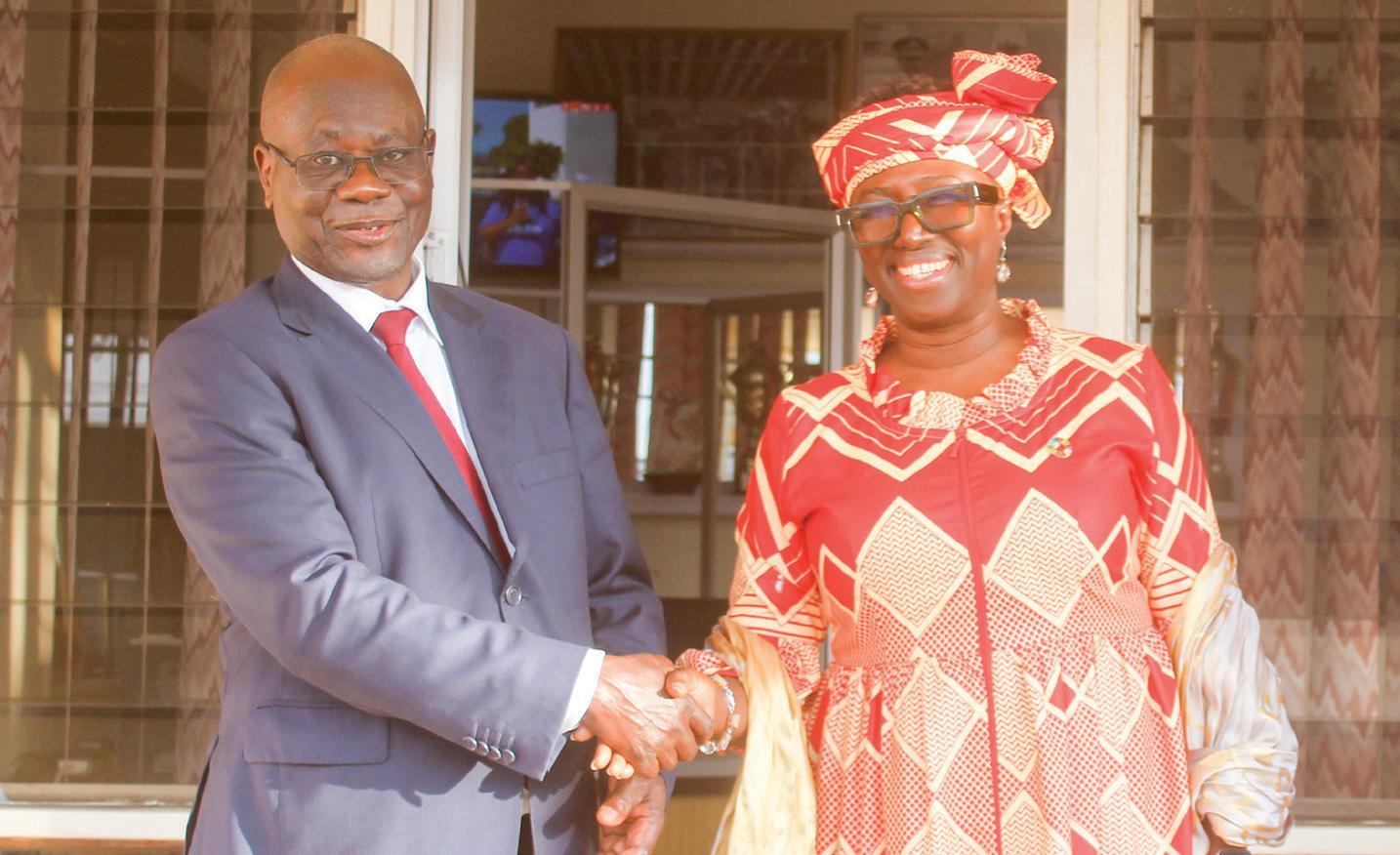Africa-Press – Malawi. By Benadetta Chiwanda Mia:
United Nations (UN) Resident Coordinator Rebecca Adda-Dontoh has urged Malawi to look inward and develop its own solutions to drive growth and support the implementation of its national development agenda.
Adda-Dontoh says the global development cooperation landscape is becoming increasingly challenging, and countries like Malawi must strengthen domestic resource mobilisation efforts to sustain progress.
“When you have friends who support you, it is a good thing. But when the time comes that they can no longer support you, then you have to look internally.
“That is where the UN is stepping in; to support Malawi in building the capacity to mobilise its own resources.
It is a long road, but it is doable,” Adda-Dontoh said.
She made the comments yesterday during a visit to The Times Group head office in Blantyre, where she commended the media for its role in promoting development goals and supporting the general elections scheduled for September 16.
Speaking on the elections, the UN representative called for peace, tolerance and inclusivity among citizens, political parties and candidates.
She also underlined what she called the media’s crucial responsibility as the fourth estate in fostering meaningful dialogue and advocating for a peaceful electoral process.
“For us, independent media is very critical in accelerating the achievement of Malawi 2063 and the Sustainable Development Goals.
“We came here to appreciate the work of the media and of The Times Group in particular, and to challenge you to continue supporting Malawi’s development journey,” Adda-Dontoh said.
Her remarks come at a time when Malawi is facing growing challenges in financing its development efforts.
A recent Country Focus Report by the African Development Bank (AfDB), published this month, projected that Malawi faces a financing gap of $3.59 billion to fast-track its structural transformation by 2030.
According to the AfDB, the country requires $4.5 billion through to 2030, or approximately $790 million annually to 2063, to meet its investment needs.
However, current revenue levels fall short, leaving an annual financing gap of $630 million (over K1.1 trillion).
Despite recent improvements in revenue generation, from 12.5 percent of GDP in 2022 to 18 percent in 2024, government expenditure continues to rise faster, widening the resource gap.
Adding to these pressures, Malawi recently suffered a major financial setback with a cut of approximately $350 million in aid from the United States (US), which impacted key sectors including health, education and agriculture.
Bertha ChikadzaCommenting on the situation in a recent interview, Economics Association of Malawi president Bertha Bangara Chikadza said the country remains heavily dependent on foreign aid to finance its operations and bridge budget deficits.
“This is why the withdrawal of the $350 million in [US Agency for International Development] funding created significant fiscal strain, demonstrating Malawi’s vulnerability,” Chikadza said.
She added that Malawi’s economy remains structurally weak, with agriculture, employing about 80 percent of the population, contributing only 31 percent to GDP, leaving the economy vulnerable to climate-related shocks.
Chikadza said limited domestic revenue mobilisation and rising debt threaten investment in critical sectors and could hinder development progress.
During her visit, Adda-Dontoh toured The Times Group’s facilities and held a closed-door meeting with the firm’s Managing Director Leonnard Chikadya and senior management officials.
For More News And Analysis About Malawi Follow Africa-Press






